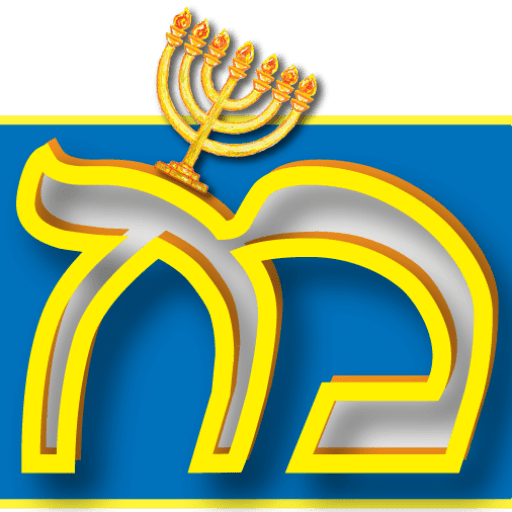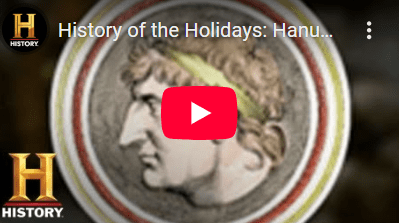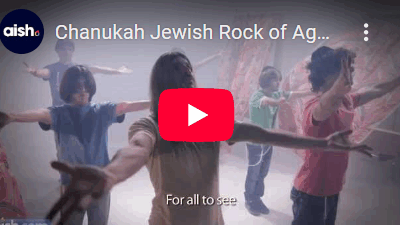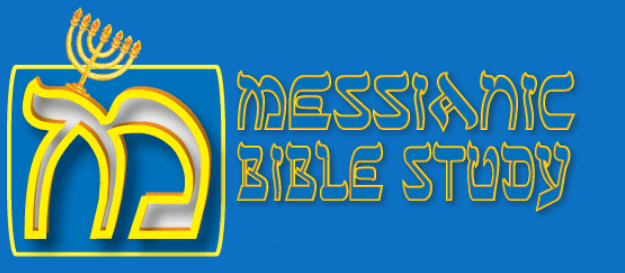
The 7 Feasts of the LORD
The Moedim of YHVHThere are 7 Biblical feasts to be kept perpetually by all those grafted in Israel.
-
Passover (Pesach)
-
Unleaven Bread (Matzah)
-
First Fruits
-
Pentecost (Shavuot)
-
Day of Trumpet (Yom Terruah, also called Rosh Hashana)
-
Day of Atonement (Yom Kippur)
-
Tabernacles (Sukkot)
In addition to these 7 feasts days two other festival are celebrated. Remembering the times Israel was under dire circumstances and yet saw a deliverance from God despite the odds. These two are called Lots (Purim) and Dedication (Hannukah)
Passover ( Pesach)
Passover or Pesach in Hebrew is not a day as much as it is a sacrifice, a lamb is chosen and kept from the 10th of Aviv until the 14th of Aviv. It is important to remember that Hebrew days start at sundown. This sacrifce was done during the day of the 14th, and then roasted and eaten in the evening, meaning it is actually eaten the following day the start of the 15th of Aviv.
Since the temples desturction Sacrifices are no longer possible Prayers, songs and meals and fasts now are all we can keep inrelation to any of the feasts. Thus common references to Passover now only refer to the meal, and what is done during that meal in relation to special prayers, readings and songs.
HOW IT IS “KEPT” (Remembered)
NOW: Families or communities have a Sedar Meal that has symbolic items to remember what was done during the temple times.
- 4 glasses of wine or grape juice are enjoyed to rember the 4 “I will…” promises of God.
- 3 pieces of matzah are eaten, in a specific way to symbolise many different aspects.
- Bitter Herbs and Sweet Charoset are eaten as a dip with matzah and or vegetables (celery)
- Salt Water is dipped with Parsley and eaten
- The Story of the Exodus is recited to pass the story to the next generation.
- Having a Glass for Elijah, and Opening the Door for Elijah.
- Only Matzah is eaten for 7 days commencing at this meal.
Tradionally Jews would not eat Lamb on this night, so as not to confuse anyone that this is a sacrifice. As this meal is remberance of what was done, and NOT A SACRIFICE!
Some addition customs are:
- Burning any remaining Chametz (Leaven Bread)
- Lighting Candles
- Singing (especially Di Dianu)
- Saying Prayers in Hebrew
- Hiding the Aficommen (chilren who find it are rewarded with a small gift or gold coin)
- Setting a place at the table for Elijah
Unleaven Bread ( Matzah)
Whilst the temple was standing: the Feast of Unleaven Bread begins at the meal to eat the Passover lamb (at sunset) The Lamb is sacrificed and cooked, but after sunset the meal is eaten with Matzah or Unleaven Bread. Only Unleaven Bread is eaten for 7 days from this day.
Now: As there is no temple, there are no sacrifices. This feast is still remember by eating only unleavened bread for 7 days. No Leaven is to be found in your gates, so you are to search of your house to find any products with leaven before passover so that all these items can be eaten or removed by this night.
First Fruits (Ha Bikurim)
This feast was a giving of first fruits of the land – at this early time of the year only barley was harvest ready. This offering was made up of barley.
Symbolically Barley is linked to the house of Judah as those who were always present in holy submsion to the Lord.
These First 3 Feasts are collectively referred to as the “Spring Feasts” as they are linked to the season of Spring in Israel and the Harvest in the Land
Feast of Weeks (Shavuot) (Pentecost)
From the Day of First Fruits 7 Weeks are counted. This is called the counting of the Omer. Seven Sevens, or a week of weeks, Hence the name Feast of weeks, the next day (after the 49) is Shavuot. This is sometimes called Pentecost (from the Greek word for 50th day) More about Shavuot is here
Day of Trumpets – Yom Terruah (Rosh Hashana)
Celebrated on the first day of the seventh month (Tishrei) the Day of Trumpets, also known as the Day of Shouting or the Day of Blowing. These names all refer to an event during temple times. This day is also called the Jewish New Year or Rosh Hashana, as it is considered be Jewish tradition to be a commemeration of Genesis 1:1 when God spoke the world into being. This makes sense as the sound of the trumpet is referred to as the sound of Gods own voice, and blowing of trumpets is the not just the mere breath of man, but of the Ruach (Spirit) of God who blows. The children of Israel, and in fact the whole world, heard the Voice of God in the Thunder and lightenings at Mt Sinai.
In the wilderness, silver trumpets were used to signal the Israelites to break camp and follow the cloud even at night. It symbolizes awaking, and beginings. The Shofar (Rams) horn is blown at the start of each new month, at the sighting of the first visible sighting of the moon. This day is the only feast day to fall on a new moon, and is therefore referred to the “the and hour that no man knows” as we cannot be sure we will see the sign of the new moon, until it is actually seen. Believers in Yeshua, may be familar with this phrase in reference to the Return of the King. Trumpet themes abound in the New Testament, the Apostle Paul speaks of a future “last trumpet” that will herald the resurrection of the dead and the transformation of the living . This event aligns with the themes of awakening and renewal inherent in Yom Teruah.
Day of Atonement (Yom Kippur)
The holiest day on the Jewish calendar. This is a day of fasting and repentance. In fact the 10 days that lead up to this day are consider to be days of repentance, and even the whole of the preceeding month of Elul.
Twin goats (kids) where the central part of this day, one was sacrificed, (for the Lord) whilst the other was sent away (to Azazel)
In temple times this is the one and only time of the year that the Cohen Hagadol (High Priest) would enter the Kosdesh Kodeshim, Holy of Holies. He would not enter in the colourful and gold garments, but in simple white linen. He would approach the Golden ark only with the insence cloud covering him, to sprinkle the blood of one of the twin goats (kids) on the east end of the ark. Kippur means cover, and the sacrifice would atone for all of israel, making the whole nation holy. This the ‘day the book of judgment is closed’ the greeting for this day is therefore ‘May your name be incribed in the Book of Life”.
The second temple period did not have an ark to complete this prescribed ceremony. A temporary measure was put in place to leave a scarlet cord from the sacrifed goat (kid) over the door to the holy of holies. Jewish texts record the cord turning white to symbolise God’s acceptance of this offering, the records also include years that this cord did not turn white, including the last 40 years the temple stood before it’s destruction.
Now it is common practice to wear white on this day as a symbol of our cleansing on this day. Though our sins be like scarlet, let us be white as snow. Isaiah 1:18
Tabernacles – Sukkot
Tabernacles – Booths, Dwelling in tents. This is a week long celebration of living in or eating and studying in a sukkah. Traditionally up to 3 sided tent with a thatched roof so you could see the stars. This is suitable in the Holy Land as there is no rain in this season. It commemerates Yeshua’s birth, having being born in a Sukkah, and coming to dwell with us from that time. This Seven day celebration is culminated by an 8th day
These Last 3 Feasts are collectively referred to as the “Fall Feasts” as they are linked to the season of Fall/Autumn in Israel and the final Harvest in the Land.
The 7 Feasts can be seen in the menorah as the first 3 are grouped as the spring feasts, Shavuot in the middle a Summer feast, and the fall feasts at the end.
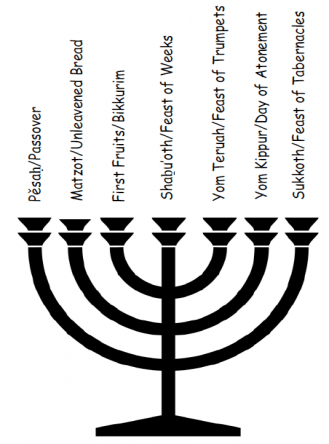
Hanukkah
What is Hanukkah and should we celebrate it? –Unlearn the Lies
What is Hanukkah and should we celebrate it? –Unlearn the Lies
History of the Holidays: Hanunkah – History Channel
History of the Holidays: Hanunkah - History Channel
Chanukah Jewish Rock of Ages (Song & Video) – Aish.com
Chanukah Jewish Rock of Ages (Song & Video) – Aish.com
Purim
Purim is a Jewish holiday that commemorates the saving of the Jewish people from annihilation at the hands of an official of the Persion Empire named Haman, as it is recounted in the Book of Esther. Haman was the royal adviser to the Persian king Ahasuerus.
